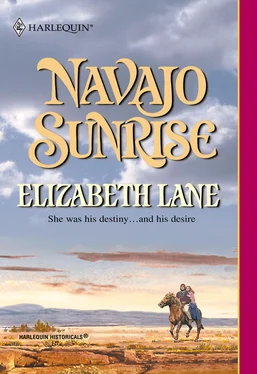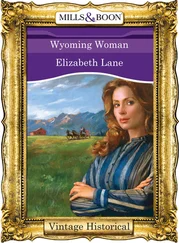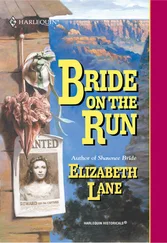Be the voice of our people, Manuelito had told him. But the Diné needed more than a voice. They needed food in their bellies and clothes on their backs. They needed dignity, hope and pride—things the bilagáana had taken away and flung far beyond their reach.
Perhaps forever.
Ahkeah moved with care as he neared the sleeping camp, slipping from shadow to shadow in the moonlit darkness. Even at this hour the sentries would be on patrol. If they caught him outside the boundary…
His pulse lurched as a flock of wood doves exploded, squawking, from the spidery branches of a creosote bush. Had the startled birds alerted the sentries? Ahkeah froze where he stood, ears straining, hearing nothing but the sound of departing wings.
What if the soldiers had already missed him? What if they were waiting for him in camp, knowing he would return to his precious daughter? Some of the blue-coats were just following orders. But there were vicious brutes among them, men who would relish the chance to make an example of any Diné who broke the rules—especially one who spoke to them as a man, in their own language.
The wind peppered Ahkeah’s face with blowing sand as he crept along the fringe of the camp. The huddled forms of his people lay scattered on the cold ground where they had fallen. Here and there, where the soldiers slumbered in their warm blankets, the embers of dying campfires glowed in the night.
He had left Nizhoni with her old aunt in the lee of a sheltering rock, beyond the supply wagon. If he could manage to cross that last small distance without being seen…
But it was already too late. Ahkeah saw four soldiers, armed with clubs, step out from behind the wagon, and he knew they had been waiting for him. Glancing to one side, he saw others appear out of the shadows. Their pale eyes reflected glints of firelight as they encircled him, cutting off all hope of escape.
Cursing and whooping, they fell on him like a pack of hungry wolves.
Bosque Redondo, New Mexico
March, 1868
Miranda Howell hunched wearily on the seat of the U.S. Army buckboard, her slim body bundled into the folds of her thick woolen cape. The cold spring wind stung her cheeks and peppered her face with alkali dust. Two weeks from tomorrow would be Easter Sunday, but nothing about this desolate sweep of country made her feel like celebrating.
“I didn’t realize New Mexico would be so cold,” she murmured, her eyes scanning the treeless horizon. “It’ll be dark soon. How much longer before we reach the fort?”
“Not long. ’Bout an hour, I reckon.” The pimple-cheeked young corporal was one of nine soldiers who’d drawn the duty of escorting the major’s daughter the 175-mile distance from Santa Fe to Fort Sumner. The other eight rode guard on the wagon, four strung out in front and four bringing up the rear. Their rifles lay across their saddles, loaded and ready. For coyotes, they’d told her, exchanging furtive winks.
In the early hours of the journey, Miranda had made an effort to smile and be pleasant with them. But after four long days of travel she was too tired to be sociable. Her eyes stared across the desert landscape, which glowed like brimstone in the light of the setting sun. A lone crow screeched harshly as it passed overhead, then flapped down behind a clump of rocks, where, judging from the odor, some ill-fated creature lay dead.
What could have possessed any sane group of men to build a fort in such a dreary place? Miranda wondered. For that matter, what was she doing here? She could have chosen to spend the holiday with Phillip’s parents on Cape Cod. Their seashore estate would be beautiful this time of year, and they had made it clear that, as their future daughter-in-law, she would be more than welcome. Why had she chosen to spend the next two weeks a thousand miles from nowhere, with the rough and taciturn father she scarcely knew?
“We ought to be seein’ Navajos afore long,” the young driver said. “They got their diggins’ all over the flat.”
“Diggings? You mean to say they’re miners?” Miranda asked, trying to imagine what might lie beneath such barren, lime-encrusted earth.
“Miners? Them Injuns?” The young driver snorted contemptuously. “Shucks, no. They dig themselves holes in the ground to keep out of the weather—lessn’ they can find some old hides or sheets of tin to put up for a shack. Why should the lazy buggers mine or farm or even hunt when they can live on handouts from the good old United States Government?”
“You mean, they have no houses? No means of employment?” Miranda asked, horrified.
“Hell—” the young man swore, then broke off and began again. “’Scuse me, miss, but they’s Navajos. An’ Navajos got their own ways of doin’ things. General Carleton, afore he got his butt—’scuse me again, miss—afore he was dismissed from runnin’ this place, he got the idea of havin’ ’em build big adobe apartment houses like the Pueblos got. Right smart idea, if you ask me. But the Navajos, they wouldn’t have none of it. Wanted to live apart in their own kind of houses, little round huts they call hogans. Finally Carleton just threw up his hands and told ’em to go ahead! But did they build any hogans? Did they build anything a’tall? Look around you!”
The corporal worked his tobacco out of his cheek and spat over the edge of the wagon. “Only thing Navajos is any good at is forgin’ fake ration tokens so they can steal more supplies! Now that Carleton’s gone there’s been talk of movin’ ’em out, most likely to the Injun Territories in Oklahoma. Good riddance, I’d say. But nobody’s holdin’ their breath for that, I tell you, ’specially now that the Injun Bureau’s took ’em over from the army. Danged government bureaucrats won’t do much more’n hand out more flour and blankets.”
“But what a wretched way for people to live!” Miranda exclaimed in genuine horror. “No work, no homes, no dignity! Surely someone could help them, teach them—”
“Beggin’ your pardon, miss, but the Navajos brought their troubles on theirselves. They was raidin’ and murderin’ over half of Arizona afore Kit Carson and his boys brought ’em to heel an’ marched the lot of ’em here to Bosque Redondo.”
“Bosque Redondo?” Miranda frowned. “That means round grove in Spanish, doesn’t it? I certainly don’t see any grove in these parts!”
The corporal snorted with laughter. “Weren’t no more than a few trees to begin with, and the Navajos cut those down for firewood the first winter. Now there’s no shade in summer and nothin’ to burn when it gets cold. Never think past tomorrow, them murderin’ redskin fools. If you ask me, Carson shoulda killed ’em all while he had the chance!”
Miranda pulled her cloak tighter about her shoulders, willing herself to ignore the young driver’s unsettling talk. It would not do for her to get caught up in this Navajo business, she lectured herself. She had come to New Mexico to spend the holidays with her father, the last time they would be together before her June wedding, perhaps the last time ever. Nothing could be allowed to spoil their time together.
“There. Told you we’d be seein’ ’em soon.” The corporal’s nasal twang cut into her thoughts. Miranda leaned forward on the wagon seat. She shaded her eyes and scanned the horizon, expecting mounted savages to come whooping over the next rise. Only when the corporal nudged her arm and pointed sharply to the left did she realize her first Navajo was little more than a stone’s throw away.
Miranda turned, looked—and felt her heart contract with pity.
The old Navajo woman stood in the dust at the roadside, her withered body outlined against the blazing vermilion sunset. The desert wind whipped her faded rags against her bones, and the imploring hands that stretched upward like the thin branches of a winter tree shook with age and cold.
Читать дальше












